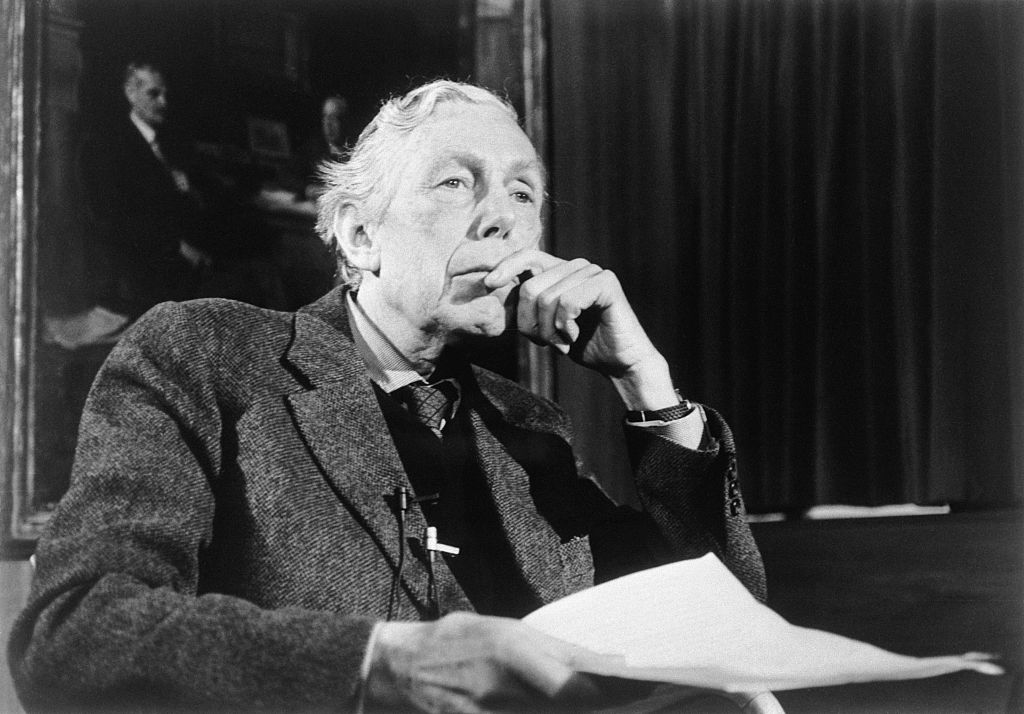Happy electorates prefer a stable polity and vote for parties offering to preserve it. Discontented electorates, like Tolstoy’s unhappy families, express themselves in less predictable ways, as Emmanuel Macron has learned to his detriment.
French electorates know this much: a clever pact with the Left in the second round of the parliamentary elections saw off the threat of Marine Le Pen’s National Rally. But Macron now finds himself negotiating with an emboldened Left coalition. Le Pen’s National Rally and the left New Popular Front together exceeded 60 per cent of the national vote, which is a measure of how French voters have abandoned Macron’s centrist Ensemble for the Right and Left extremes.
Here is what happens next. As any student of European politics can tell you, an electorate abandoning centrist parties for the extremes results in at best volatility and at worst a “Weimar trap” bringing uncompromising radicals to power. The only policy Le Pen’s National Rally and Jean-Luc Mélenchon’s Left coalition both support is a reversal of Macron’s hard-won pension reform and the return of pensionable age back to a fiscally unsustainable 62 or even 60.
As Pieter Cleppe points out in these pages, this rollback would spike the French annual deficit to over 6 per cent of GDP, and risk a widening bond spread over German government securities. France is already on an unsustainable fiscal trajectory, and this ill-advised election has made effective policy remediation impossible.
Macron’s clever second round manoeuvre has also absolved the National Rally from the responsibilities of governance. Le Pen and her lieutenant Jordan Bardella are free to pose as the defenders of French entitlements from Macron’s neoliberal heresies, a strategy likely to set them up nicely for the next Presidential election.
While President Macron will likely take solace in his constitutional monopoly over foreign and security policy, he will soon learn that a neat separation of domestic and foreign policies will be difficult to maintain. France’s inability to get its fiscal house in order gravely undermines Macron’s desire to lead Europe and any ambitions he still has to serve as the EU’s strategic mind.
Germany’s acrimonious ruling coalition recently agreed on a new budget after arduous negotiations. The notorious debt brake combined with a constitutional prohibition on the redistribution of Covid relief funds drove painful cuts in vital government programs ranging from infrastructure to defence. You may well imagine that after this gruelling exercise, patience in Berlin for French profligacy is extremely limited, and could tempt the hard men in the German finance ministry to unleash the EU’s excessive deficit procedures. The specter of la grande France treated like a common EU deadbeat would ruin what remains of Macron’s presidential reputation.
The repercussions of French dysfunction for the European Union would be dire at the best of times, much less in this emerging era of military predation and fracturing alliances. The Americans are desperate to offload responsibility for Ukraine to the Europeans, who after two and half years of war are still unable to provide the military support needed to defend Ukraine, much less impose a settlement on Russia.
EU defence bonds to finance rearmament remain blocked by Chancellor Scholz, who as recently as last week rejected a direct plea from incoming NATO Secretary General Mark Rutte. A new Trump administration may well choose a “sink or swim” approach to European defence, figuring that Europe will never take the difficult decisions needed to defend itself unless the threatened loss of American support compels it to.
Since its inception, the European project has advanced by coupling ambitious French designs with the German economic brawn needed to pay for them. Yet today when looming realities demand a strategic evolution for Europe, both sides of this partnership are faltering, consumed by strictly domestic difficulties.
Macron’s rash decision to call new elections has crippled his executive autonomy by trying his European policies to a hostile new Parliament and unsustainable fiscal excess. A French president incapable of governing his own country is in no position to lead Europe; he is, as they say in Texas, all hat and no cattle.
For its part, Berlin is unable to maintain its traditional role as EU bill payer. Beyond the fiscal straitjacket imposed by the debt brake, the German export engine has been wrecked by the loss of cheap Russian fossil fuels and a dramatic decline in Chinese demand for German products.
A wounded French president yoked to an economically faltering German partner is incapable of realizing an enhanced strategic role for Europe. What will the United States make of a Europe led by two strategically timid political introverts? An axis of Eeyores, still dependent on the Big Daddy across the water to keep them safe.





Zelensky drags America into war, or Zelensky loses